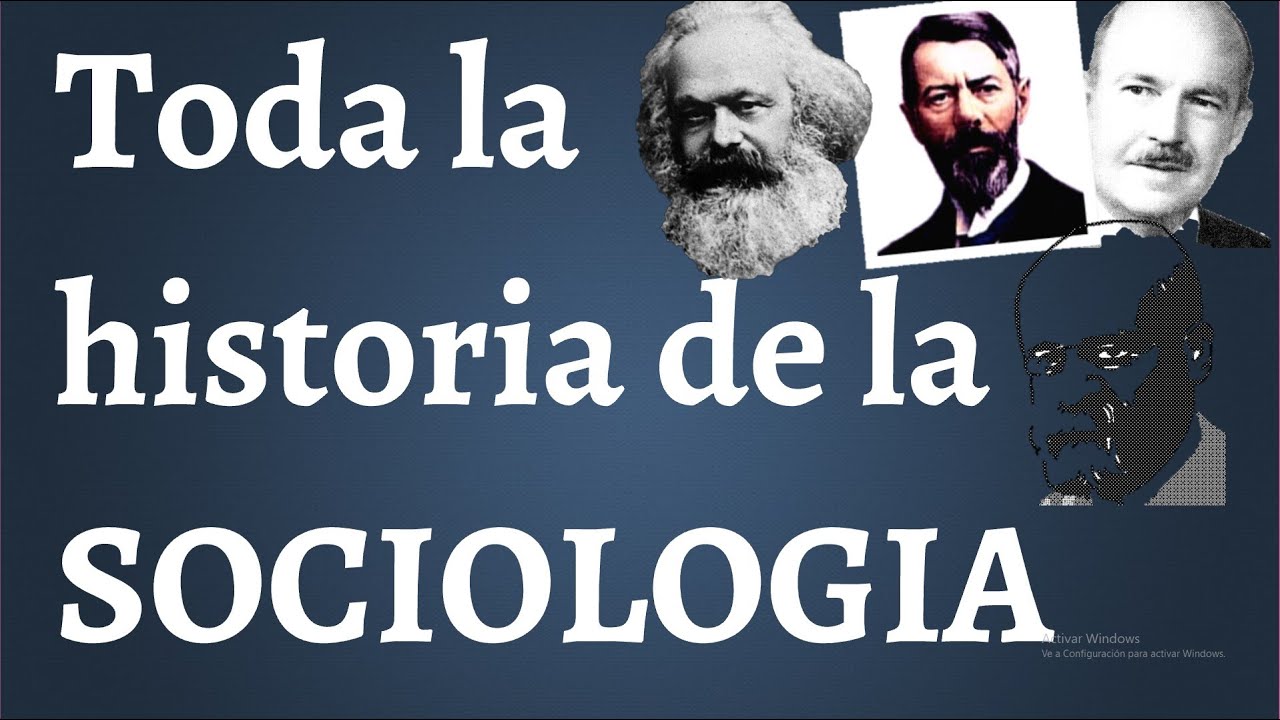7 Teori Sosiologi Klasik Beserta Tokohnya
Summary
TLDRThis video from the 'Halo edukasi' channel delves into the classical sociological theories and their founders. It introduces Auguste Comte, known as the 'Father of Sociology', who proposed the three stages of human development: theological, metaphysical, and positive. It also covers Herbert Spencer's social Darwinism, Ibn Khaldun's insights on social change, and the contributions of Emile Durkheim, Max Weber, and George Simmel. The video invites viewers to engage with the content by sharing their thoughts on which sociologist's work they find most influential.
Takeaways
- 📚 The video introduces 7 classical sociological theories and their founders, emphasizing the historical development of sociology as a science.
- 👤 Auguste Comte is recognized as the 'Father of Sociology', having introduced the term 'sociology' and proposing the theory of the three stages of human development: theological, metaphysical, and positive.
- 🌟 Herbert Spencer is known as the initiator of 'Social Darwinism', applying Darwin's theory to the analysis of societal development and focusing on how society organizes to solve social problems.
- 🌱 Emile Durkheim is a key figure in macro-sociology, studying social phenomena as 'social facts' with their own laws, like natural laws, and emphasizing the transition from mechanical to organic solidarity in society.
- 📘 Max Weber contributed to sociology with his interpretive methodology 'verstehen' for understanding social action and his influential ideas on bureaucracy and rationalization.
- 🔍 George Simmel introduced the concept of 'form' in sociology, studying the abstract construction of society and the categorization of social life, such as gender, race, class, and religion.
- 🌐 The video script highlights the importance of understanding the classical sociological theories and their impact on modern sociology.
- 👨🏫 Ibn Khaldun is acknowledged as one of the earliest social scientists, with notable theories on the change of power and the development from traditional to more complex societies.
- 🌍 The script mentions other influential sociologists like Herbert Martineau, who translated Comte's work and focused on the principles of morality and social values in relation to institutional relations and social behavior.
- 📈 The video encourages viewers to reflect on which of these sociologists and their theories they most often reference or cite in their studies or work.
- 📢 The video ends with a call to action for viewers to like, comment, and subscribe to the 'Halo edukasi' channel and to activate notifications for the latest videos.
Q & A
Who is considered the father of sociology and what is his most famous theory?
-Auguste Comte is considered the father of sociology. His most famous theory is the Law of Three Stages, which posits that human development goes through theological, metaphysical, and positive stages.
What is the contribution of Herbert Spencer to sociology?
-Herbert Spencer is known for introducing social Darwinism into sociology, applying Darwin's theory of evolution to analyze societal development. He focused on how societies are organized to solve social problems and proposed that there are certain laws governing the social world.
What is the main focus of Harriet Martineau's sociological studies?
-Harriet Martineau's sociological studies focused on the principles of morality and societal values in relation to institutional social relations and observable patterns of behavior.
What is the significance of Ibn Khaldun's work in the field of sociology?
-Ibn Khaldun is recognized as one of the first social scientists. His notable theory in classical sociology is about the rise and fall of civilizations, emphasizing the importance of social cohesion and the role of economic factors in societal development.
How does Emile Durkheim's view of society's evolution differ from other classical sociologists?
-Emile Durkheim viewed society's evolution from simple to complex forms, from primitive to civilized, and from mechanical to organic solidarity. He developed macro-sociology, which considers social phenomena as social facts with their own laws, akin to natural laws.
What is Max Weber's methodological approach to understanding social science?
-Max Weber proposed the method of 'verstehen' or interpretive understanding of social action to grasp the social world. He argued against the application of natural science methodologies to social science, asserting that social science has its own logic.
What is George Simmel's concept of 'form' in sociology?
-George Simmel introduced the concept of 'form' in sociology, suggesting that society is an abstract construction that can be studied through social processes and categorizations such as gender, race, class, and religion. He focused on the various forms of interaction in social life, including exchange, conflict, subordination, and recognition.
What is the main theme of the video regarding classical sociological theories?
-The main theme of the video is to introduce and discuss the classical sociological theories and their founders, highlighting their key contributions and how their ideas have shaped the understanding of society and social behavior.
How does the video encourage viewers to engage with the content?
-The video encourages viewers to engage with the content by inviting them to share which sociologist's work they often read or cite, fostering discussion in the comments section, and reminding viewers to like, comment, subscribe, and activate notifications for the channel.
What is the significance of the 'Law of Three Stages' in understanding societal development?
-The 'Law of Three Stages' is significant as it provides a framework for understanding how societies progress from religious explanations to philosophical reasoning and finally to scientific understanding, reflecting a shift in human thought and societal organization.
Outlines

This section is available to paid users only. Please upgrade to access this part.
Upgrade NowMindmap

This section is available to paid users only. Please upgrade to access this part.
Upgrade NowKeywords

This section is available to paid users only. Please upgrade to access this part.
Upgrade NowHighlights

This section is available to paid users only. Please upgrade to access this part.
Upgrade NowTranscripts

This section is available to paid users only. Please upgrade to access this part.
Upgrade NowBrowse More Related Video
5.0 / 5 (0 votes)





